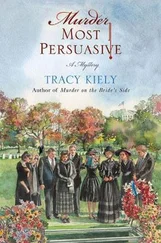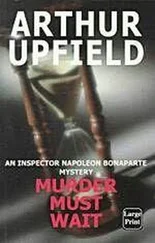He looked at the street plan on the wall and at the switchboard. He knew very well that every accident was reported.
“He hasn’t been run over,” said Andre. “At about eight o’clock he was near the Etoile, but we’ve completely lost track of him since then.”
“Near the Etoile? How do you know?”
“It’s rather a long story, but it boils down to this—that a whole series of alarms were set off by someone smashing the glass. They followed a circuitous route from your place to the Arc de Triomphe. At the foot of the last one, they found a blue-check handkerchief, a boy’s handkerchief, among the broken glass.”
“He has handkerchiefs like that.”
“From eight o’clock onward, not a sign of him.”
“Then I’d better get back to the station. He’s certain to go there, if he told me to meet him there.”
He was surprised at the sudden silence with which his last words were greeted. He looked from one to the other, perplexed, then anxious.
“What is it?”
His brother looked down at the floor. Inspector Saillard cleared his throat, hesitated, then asked, “Did you go to see your mother-in-law last night?”
Perhaps, as his brother had suggested, Olivier was rather lacking in intelligence. It took a long time for the words to sink in. You could follow their progress in his features.
He had been gazing rather blankly at the Inspector. Suddenly he swung around on his brother, his cheeks red, his eyes flashing. “Andre, you dare to suggest that I—”
Without the slightest transition, his indignation faded away. He leaned forward in his chair, took his head in his two hands, and burst into a fit of raucous weeping.
Ill at ease, Inspector Saillard looked at Andre Lecœur, surprised at the latter’s calmness, and a little shocked, perhaps, by what he may well have taken for heartlessness. Perhaps Saillard had never had a brother of his own. Andre had known his since childhood. It wasn’t the first time he had seen Olivier break down. Not by any means. And this time he was almost pleased, as it might have been a great deal worse. What he had dreaded was the moment of indignation, and he was relieved that it had passed so quickly. Had he continued on that tack, he’d have ended by putting everyone’s back up, which would have done him no good at all.
Wasn’t that how he’d lost one job after another? For weeks, for months, he would go meekly about his work, toeing the line and swallowing what he felt to be humiliations, till all at once he could hold no more, and for some trifle—a chance word, a smile, a harmless contradiction—he would flare up unexpectedly and make a nuisance of himself to everybody.
What do we do now? The Inspector’s eyes were asking.
Andre Lecœur’s eyes answered, Wait.
It didn’t last very long. The emotional crisis waned, started again, then petered out altogether. Olivier shot a sulky look at the Inspector, then hid his face again.
Finally, with an air of bitter resignation, he sat up, and with even a touch of pride said: “Fire away. I’ll answer.”
“At what time last night did you go to Madame Fayet’s? Wait a moment. First of all, when did you leave your flat?”
“At eight o’clock, as usual, after Francois was in bed.”
“Nothing exceptional happened?”
“No. We’d had supper together. Then he’d helped me to wash up.”
“Did you talk about Christmas?”
“Yes. I told him he’d be getting a surprise.”
“The table radio. Was he expecting one?”
He’d been longing for one for some time. You see, he doesn’t play with the other boys in the street. Practically all his free time he spends at home.”
“Did it ever occur to you that the boy might know you’d lost your job at the Presse ? Did he ever ring you up there?”
“Never. When I’m at work, he’s asleep.”
“Could anyone have told him?”
“No one knew. Not in the neighborhood, that is.”
“Is he observant?”
“Very. He notices everything.”
“You saw him safely in bed and then you went off. Do you take anything with you—anything to eat, I mean?”
The Inspector suddenly thought of that, seeing Godin produce a ham sandwich. Olivier looked blankly at his empty hands.
“My tin.”
“The tin in which you took your sandwiches?”
Yes. I had it with me when I left. I’m sure of that. I can’t think where I could have left it, unless it was at—”
“At Madame Fayet’s?”
“Yes.”
“Just a moment. Lecœur, get me Javel on the phone, will you? Hallo! Who’s speaking? Is Janvier there? Good, ask him to speak to me. Hallo! Is that you, Janvier? Have you come across a tin box containing some sandwiches? Nothing of the sort. Really? All the same. I’d like you to make sure. Ring me back. It’s important.”
And, turning again to Olivier: “Was Francois actually sleeping when you
left?”
“No. But he’d snuggled down in bed and soon would be. Outside, I wandered about for a bit. I walked down to the Seine and waited on the embankment.”
“Waited? What for?”
“For Francois to be fast asleep. From his room you can see Madame Fayet’s windows.”
“So you’d made up your mind to go and see her.”
“It was the only way. I hadn’t a bean left.”
“What about your brother?”
Olivier and Andre looked at each other.
“He’d already given me so much. I felt I couldn’t ask him again.”
“You rang at the house door, I suppose. At what time?”
“A little after nine. The concierge saw me. I made no attempt to hide— except from Francois.”
“Had your mother-in-law gone to bed?”
“No. She was fully dressed when she opened her door. She said, ‘Oh, it’s you, you wretch!’ ”
“After that beginning, did you still think she’d lend you money?”
“I was sure of it.”
“Why?”
“It was her business. Perhaps also for the pleasure of squeezing me if I didn’t pay her back. She lent me ten thousand francs, but made me sign an I. O. U. for twenty thousand.”
“How soon had you to pay her back?”
“In a fortnight’s time.”
“How could you hope to?”
“I don’t know. Somehow. The thing that mattered was for the boy to have a good Christmas.”
Andre Lecœur was tempted to butt in to explain to the puzzled Inspector, “You see! He’s always been like that!”
“Did you get the money easily?”
“Oh, no. We were at it for a long time.”
“How long?”
“Half an hour, I daresay, and during most of that time she was calling me names, telling me I was no good to anyone and had ruined her daughter’s life before I finally killed her. I didn’t answer her back. I wanted the money too badly.”
“You didn’t threaten her?”
Olivier reddened. “Not exactly. I said if she didn’t let me have it I’d kill myself.”
“Would you have done it?”
“I don’t think so. At least, I don’t know. I was fed up, worn out.”
“And when you got the money?”
“I walked to the nearest Métro station, Lourmel, and took the underground to Palais Royal. There I went into the Grands Magasins du Louvre. The place was crowded, with queues at many of the counters.”
“What time was it?”
“It was after eleven before I left the place. I was in no hurry. I had a good look around. I stood a long time watching a toy electric train.”
Andre couldn’t help smiling at the Inspector. “You didn’t miss your sandwich tin?”
“No. I was thinking about Francois and his present.”
“And with money in your pocket you banished all your cares!”
The Inspector hadn’t known Olivier Lecœur since childhood, but he had sized him up all right. He had hit the nail on the head. When things were black, Olivier would go about with drooping shoulders and a hangdog air, but no sooner had he a thousand-franc note in his pocket than he’d feel on top of the world.
Читать дальше












